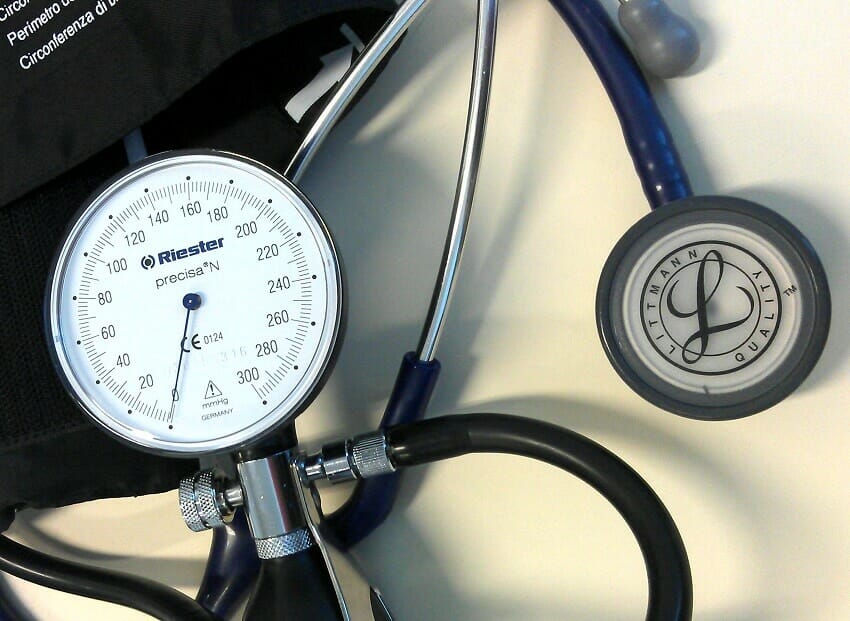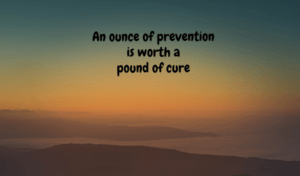High blood pressure (aka hypertension in medical circles) is thought to affect 1 in 3 adult Australians with this figure increasing with age. It reaches a peak of over 40% in adults 75 or older (Australian Bureau of Statistics 2018).
Blood pressure refers to the pressure your blood exerts on your arteries (a bit like water through a hose). You get two numbers in your blood pressure reading. The first (known as systolic) refers to the pressure when your heart is pumping. The second (known as diastolic) is the pressure when your heart is between pumps i.e. relaxed.
Do you know your blood pressure numbers? Have they changed in the last decade?
In Australia, high blood pressure is generally classified as anything over 140/90. Many consider optimal blood pressure to be less than 120/80. Between these two numbers, you could be heading towards hypertension.
Why should you care about your blood pressure?
Often your blood pressure can be elevated without any tell-tale symptoms. Unless you get it checked regularly, high blood pressure may go undetected for many years. So don’t wait for symptoms to appear or assume that a lack of symptoms means everything is ok. Trouble could be brewing.
Why is this a problem? High blood pressure increases your risk of stroke, heart attack, heart failure or kidney disease. These are all potentially nasty problems that would be good to avoid if possible, don’t you think?
In some cases, high blood pressure may run in the family (possibly a genetic cause). However, in most cases, it is considered to be a disease of lifestyle.
Is there a family history of high blood pressure or heart disease in your family?
If you have a family history of heart disease or hypertension, that is all the more reason to pay attention to your numbers and have your blood pressure checked periodically. But even without a family history, it’s a good idea to keep an eye on your blood pressure as you get older. ( I am particularly interested in trends. Even if your numbers are still considered to be in the healthy range, are they changing over time?)
The lifestyle factors that increase your risk of high blood pressure
You might be familiar with this list but how many of these factors apply to you?
- being above your healthy weight
- being sedentary or not getting much exercise
- stress, especially if poorly managed
- an unhealthy diet (particularly if high in salt, sugar, trans-fats or excess calories)
- smoking
- drinking alcohol on a frequent basis
- poorly regulated blood sugar
The good news is these are all things you can potentially do something about.
Simple measures you can implement to reduce your blood pressure
There are no fancy or complicated things you need to do. Just start by adopting some or all of the following:
- increase the amount of fruit and vegetables in your diet
- decrease the proportion of foods high in saturated or trans fat (it may be as simple as swapping a biscuit for a piece of fruit)
- increase the amount of physical activity you do. This can be hard for some people but I believe any increase is a step in the right direction so start where you are at and do what you can do.
- limit your alcohol intake (less than 2 standard drinks per day for men and one standard drink for women is the recommendation)
- incorporate some relaxation activity into your life or develop some stress management techniques
- work towards losing a little bit of weight (which may happen naturally by adopting the above points)
- quit smoking (and keep quitting until you get there)
How can naturopathic support help you manage your high blood pressure?
Sometimes you know that you should do these things but it is difficult to get going. There may be many hurdles to overcome. This is where I can help. I will work with you to develop a strategy that incorporates sustainable lifestyle changes and dietary suggestions. I can also prescribe nutritional supplements which are known to be helpful with stress, weight loss, sugar cravings etc as well as herbs and nutrients that are proven to work directly on reducing blood pressure.
Given the risks associated with high blood pressure, it’s a great idea to know your blood pressure and have it checked periodically. That way you can track whether it is sneaking up over time and nip it in the bud. I can do this as part of your consultations.
Do you have metabolic syndrome?
Metabolic syndrome is the term given to a cluster of health conditions that, when they occur simultaneously, increase your risk of diabetes, heart disease or stroke. If left unaddressed they may, in the long term, cause damage to your heart, kidneys, liver and arteries.
Generally speaking, you would be considered to be at increased risk of metabolic syndrome if you have a waist circumference of more than 94cm for men or 80cm for women along with two or more of the following:
- Raised fasting glucose levels
- High blood pressure
- High triglycerides
- Low HDL cholesterol (i.e. the “good” cholesterol)
Does that sound like you or someone you know?
It is estimated that up to one-quarter of the Australian population might meet these criteria. If there is a family history of any of these factors then that is even more reason to do something about it now.
If you are wondering if you may have metabolic syndrome, it is a simple case of checking your waist measurement, having your blood pressure checked and testing your blood glucose and cholesterol markers.
The reason this cluster of symptoms is called metabolic syndrome is that they are largely a product of a poorly-working metabolism i.e. your body is not working the way it is supposed to.
As you might guess, the factors that increase your risk of developing metabolic syndrome are the same as those for high blood pressure. And similarly, the diet and lifestyle recommendations for high blood pressure will help reduce your markers for metabolic syndrome.
What if you are taking medicine for blood pressure, cholesterol or diabetes?
If you are currently taking pharmaceutical medicines for any of these conditions, it is important that your numbers are regularly monitored and I would encourage you to work with your GP and naturopath if you intend to make changes to your diet or lifestyle. It is quite possible that your GP will need to reduce the dose of your medicine over time as your body responds to the positive dietary and lifestyle changes you make.
Would you like my help?
If you are struggling with your blood pressure (or other markers of metabolic syndrome), rest assured, help is at hand. Your first step is to book a free, no-obligation, 15-minute clarity call (below) to have a chat with me about your particular circumstances and we can work out if I am your next best move.





